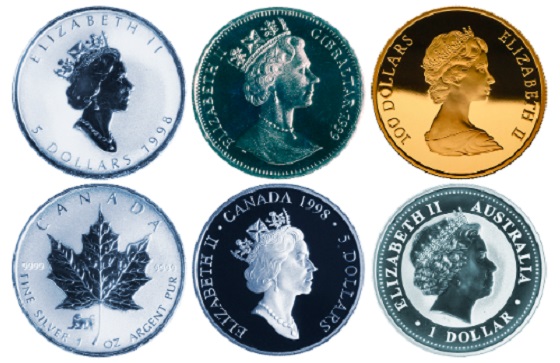Also Interesting
Is the Anger Toward Fiat Currency Justified?

Back in 2012, the Cato Institute published a paper titled The Coming Fiat Money Cataclysm and the Case for Gold. The libertarian think tank is hardly unique in its animosity toward the fiat currency system, nor was its 2012 paper wholly unique in its concepts and sentiments. It did, however, predict some of the issues we are trying to resolve today, notably inflation linked to the era of “cheap” money through low-interest rates.
Today, if you look at social media, particularly platforms like Reddit and Twitter/X, you’ll also find plenty of derisory posts about the fiat system. What’s more, we might argue, albeit unscientifically, that the backlash is growing. Some of this can be quantified. For example, there is some correlation between the rise of Bitcoin as hard money with a limited supply and
the criticism of the fiat currency system. However, some of it is not so easy to quantify, such as the animosity toward fiat currency being linked to wider dissatisfaction with the state.
But is any of it justifiable? The problem with answering that question is that there are both economic and sociological answers. The former is easier to frame, whereas the latter is not. Let’s start, though, by analyzing what we mean by fiat currency, which will help us understand its critics.
Fiat currency is effectively all money
Fiat currency is essentially money not backed by a physical commodity (gold or silver, for instance). It is, therefore, nearly all the money in existence in the world today. When you look at the trillions of dollars being traded in forex markets, it is fiat currency that’s being traded. The Canadian dollar used to be partially backed by gold, and some of its value is derived
from oil prices, but despite some arguments to the contrary, it remains a fiat currency.

So, why, then, should we criticize money? Well, it’s due to the fact that having no physical backing, such as a lump of gold or a barrel of oil, central banks and governments can print that money out of thin air. The charge against it is that printing new money creates more of it (naturally), and that eventually devalues it. You’ll often see anti-fiat accounts on Twitter/X
posting charts of how their currency’s purchasing power has declined or will decline over time. This is the economic argument against fiat currencies.
This chart shows how many years it would take for each fiat currency to lose 50% of its buying power if today's inflation rates remained constant.
The red line marks the average number of years worked before retirement.
There will be no retiring if one chooses to save in fiat. pic.twitter.com/P5CjXg5v3e
— Sam Callahan (@samcallah) April 2, 2024
However, the argument loses merit when certain factors are pointed out. Yes, the Canadian dollars in your pocket lose purchasing power over time, and that’s why you can’t buy a house for the same price as your grandparents. Yet, you also will earn a lot more than your grandparents. If something used to cost a dollar and you earned ten per hour later costs five
dollars, yet you earn fifty per hour, there isn’t really a problem. Of course, that’s just the theory, and it does not always work that way in practice.
Wages keeping up with inflation
In Canada, for example, disposable personal income has tripled since 2001. It also increased in the last quarter of 2023 (the latest period for measurement). Have wages kept up with inflation? Not always; you might look at everything from the cost of a cup of coffee to your mortgage payments to consider that it hasn’t. But the problem is not fiat currency in and of itself. It is the balance between price rises and the amount of money you earn. From the period 2019-2022, average hourly wages grew 12.5% in Canada; CPI rose 10.1% in that time. There were accelerated periods of inflation, particularly in the aftermath of the pandemic, but on balance, wages kept up with inflation.
Now, none of this is meant to say that the fiat system is perfect, nor does it suggest that the government and central banks get it right on balancing the system. But broadly speaking, the antagonism toward fiat currency tends to be more sociological than economic. In short, people are angry at the system, not fiat currency itself. Those pushing the demise of fiat currency are often anti-establishment, at least ostensibly. They are interested in concepts like Bitcoin not only for financial reasons but also because it is not a creation of the state.

Their concerns do go into other areas, such as central bank digital currencies (CBDCs), and it leads them to see the fiat currency system as one of control. How valid are those concerns about CBDCs? We would be foolish to dismiss them, and there should be perhaps a sense of frustration that the mainstream media is broadly ignoring the threat. At the moment, the official line from Canada is that there are no plans for a CBDC – yet. However, and this is important – the BoC is apparently researching the “need” for one in the future.
What would that “need” be? Could it be the control of citizens’ finances? There is an all-too-scary suggestion that this could be the route that governments take, where fiat currency becomes less money and more like social credit. You drink or gamble too much? Well, the government will freeze the money in your account until you prove you are spending responsibly. If we go into a situation where fiat currency becomes a system of control, then inflation is the least of our worries.
For some, there is a sense of a tipping point on the horizon. We have this situation where governments are constantly printing money – and taking on huge amounts of debt – and we have the specter of CBDCs. You can, therefore, understand the allure of Bitcoin and other decentralized forms of currency, although those systems in themselves are not perfect. The
question, though, is whether we meet these challenges before the tipping point is reached?
Also Interesting
The bizarre story of Taro Tsujimoto

The National Hockey League (NHL) has seen its fair share of strange moments, but few compare to the bizarre and hilarious tale of Taro Tsujimoto, a player who never existed. His “selection” in the 1974 NHL Draft remains one of the most legendary pranks in hockey history. If you want to wager on actual players, making the 1xBet app download is definitely a great idea.
In the 1970s, the NHL Draft was a much less glamorous event than today. It was a tedious process conducted over the phone, with teams calling in their picks. The 3 biggest highlights of what happened during that year’s draft were:
- the draft dragged on for hours;
- there were multiple rounds and teams selecting unknown prospects from obscure leagues;
- frustrated with the monotony, Buffalo Sabres general manager Punch Imlach decided to have a little fun.
As the 11th round approached, Imlach instructed his team’s representative to draft Taro Tsujimoto, a supposed forward from the Tokyo Katanas of the Japan Ice Hockey League. The name sounded authentic enough. The league officials, unfamiliar with Japanese hockey, accepted the pick without question. By downloading the 1xBet app you will also be able to wager on great NHL teams too.
A small problem
There was a small problem with all of this, as 2 things didn’t exist: Tsujimoto and the Tokyo Katanas. Imlach had completely fabricated the player as a joke, taking advantage of the NHL’s lack of verification. When it comes to NHL wagers, there is no better platform than the 1xBet Canada site.
For weeks, the league listed Tsujimoto as an official draft pick, and even some newspapers reported on Buffalo’s mysterious new Japanese prospect. Eventually, the Sabres admitted the hoax, and the NHL was forced to retroactively erase the selection from its records.
Despite being a fictional player, Taro Tsujimoto took on a life of his own. Buffalo Sabres fans embraced the prank, and over the years, his name has become a cult legend in hockey culture. Some fans even wore jerseys with “Tsujimoto” on the back. The joke persisted so much that when EA Sports released NHL video games, players could occasionally find Tsujimoto in the game’s draft pool as a hidden Easter egg.
More than just a prank, the story of Taro Tsujimoto highlights 2 things: the quirks of old-school sports management and the creativity of one of hockey’s most colorful executives. Today, with the draft process being highly scrutinized and broadcast live, such a prank would be impossible. But Tsujimoto’s legacy lives on as one of hockey’s greatest inside jokes. What is not a joke are the great rewards that a platform like the Canadian 1xBet site can give you.
Also Interesting
60% of Canadians gamble each month – why the industry is going from strength to strength

When it comes to regulating gambling, Canada has a somewhat relaxed approach. The Canadian Gaming Association oversees the industry, but it’s up to individual provinces to enact and enforce any laws relating to online casino gaming, sports betting, traditional casino gaming, and other forms of gambling.
Canada’s online casino gaming laws are not totally clear, but individual provinces are starting to put this right. Ontario was the first and did so when it launched its own regulated igaming market in April 2022. Now some other provinces have followed suit, creating a safer igaming environment for players in those provinces. Below is a look at gambling in Canada compared to other parts of the world, at gaming laws in Alberta compared to other provinces, and at the future of the Canadian, US, and UK gambling industries.
Canada: a forever love of gambling
Gambling in some form or other has always been popular in Canada. Way back in the 1990s, research found six in ten Canadians (60%) gambled every month. Additionally, four in ten (43%) spent between 1 and 20 Canadian dollars on gambling. Fast forward to today and the Canadian gambling market is worth 14.2 billion US dollars as of January 2024, according to data on the website of consumer and market data company Statista.
It seems Canada enjoys wagering just as much as two other countries that love a gamble: the US and the UK. Data on the Statista website shows that 49% of US adults took part in gambling activities in 2023. Fifty-six percent said their attitude towards gambling had relaxed, compared to the 50% of 2019.
The UK returned similar stats for the same year. Forty-eight percent of adults reported engaging in gambling activity. Online casinos generated the most gross gambling yield in 2023, but it was the nation’s National Lottery that people played the most.

Alberta: following Ontario’s lead
The regulatory developments in Ontario have triggered movement in Alberta. In May 2024, Bill 16, the Red Tape Reduction Amendment Act, made it through the process and later received Royal Assent to become law. The act removes the monopoly of gaming by a single government entity and will allow private operators, licensed by Alberta’s provincial regulator, to provide online gaming services in Alberta, meaning players will have a choice of more than one Alberta online casino to play at.
The regulation transforms Alberta into one of the more liberal provinces when it comes to online gambling, others being Quebec, Ontario, and British Columbia.
Several provinces, such as Novia Scotia and Northwest Territories, have no provincially regulated online gaming sites. Some also restrict betting on horse racing and/or other types of sports betting, obliging citizens to use international betting sites for freedom from caps and betting on as many events as they wish.

What lies ahead for the Canadian, US, and UK gambling industries?
Canada’s appetite for gambling is clear, and the industry’s online sector is beginning to thrive. Ontario has enjoyed vast success by creating its own regulated market, one which, in just its first year, saw Canadians place billions in wagers and the industry itself generate more than a billion in total gaming revenue.
Canada can expect to see other provinces follow Ontario’s lead and allow private operators to provide services in the province under license. The purpose of the regulation is player protection. Any province that develops a regulated market will focus on this, so there will also be regulations around the advertising of gambling services.
The US
Gambling online is the future for the US, too, although states are slow to legalize it. As of September 2024, 38 states had legalized sports betting, following the US Supreme Court’s ruling that states could regulate sports gambling directly.
Despite allowing sports betting, some states only permit in-person betting, and only a few states allow online casino gaming. Operators believe online casino gaming is the future of gambling.
The UK
In the UK, the use of artificial intelligence (AI) will get bigger and bigger. Companies have realized AI can enhance players’ experience and are embracing it more and more. For instance, sports betting websites can use it to crunch data and provide iGamers with stats and other data to make better betting decisions. They’re also understanding they can use AI to prioritize content players are likely to be interested in and to personalize their offerings and services to players’ preferences.
Canada enjoys gambling as much as America and the UK. Although laws around igaming are more of a grey area in Canada, some provinces are clearing the issue up by creating regulated markets and experiencing great success. As time goes by, more are sure to follow.
-

 Business1 day ago
Business1 day ago28 energy leaders call for eliminating ALL energy subsidies—even ones they benefit from
-

 2025 Federal Election1 day ago
2025 Federal Election1 day agoCarney’s Cap on Alberta Energy Costing Canada Billions
-

 Business1 day ago
Business1 day agoTrump Tariffs are not going away. Canada needs to adapt or face the consequences
-

 Economy21 hours ago
Economy21 hours agoSupport For National Pipelines And LNG Projects Gain Momentum, Even In Quebec
-

 Health1 day ago
Health1 day agoDr. Pierre Kory Exposes the Truth About the Texas ‘Measles Death’ Hoax
-

 Economy22 hours ago
Economy22 hours agoSolar and Wind Power Are Expensive
-

 Business24 hours ago
Business24 hours agoAll party leaders must oppose April 1 alcohol tax hike
-

 Business23 hours ago
Business23 hours agoWhy a domestic economy upgrade trumps diversification

